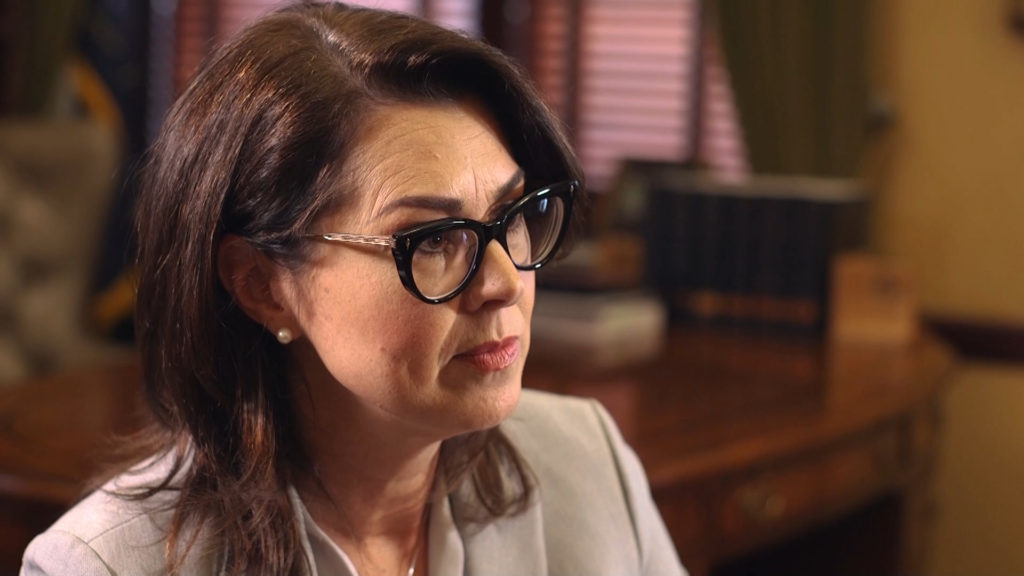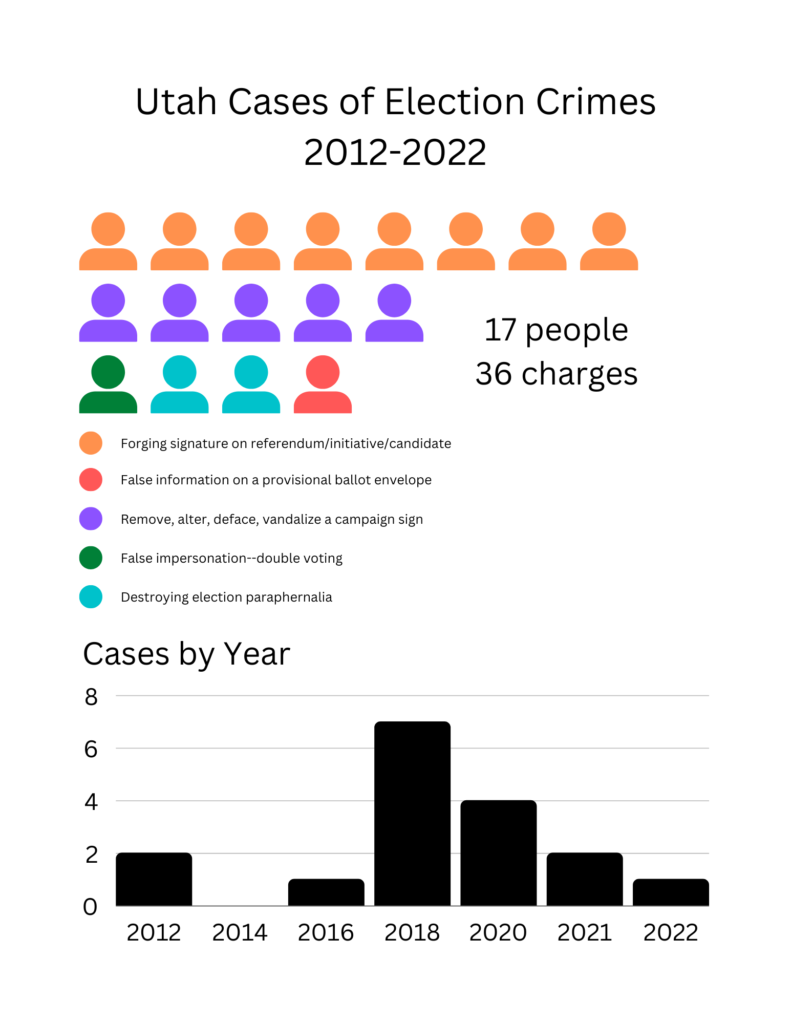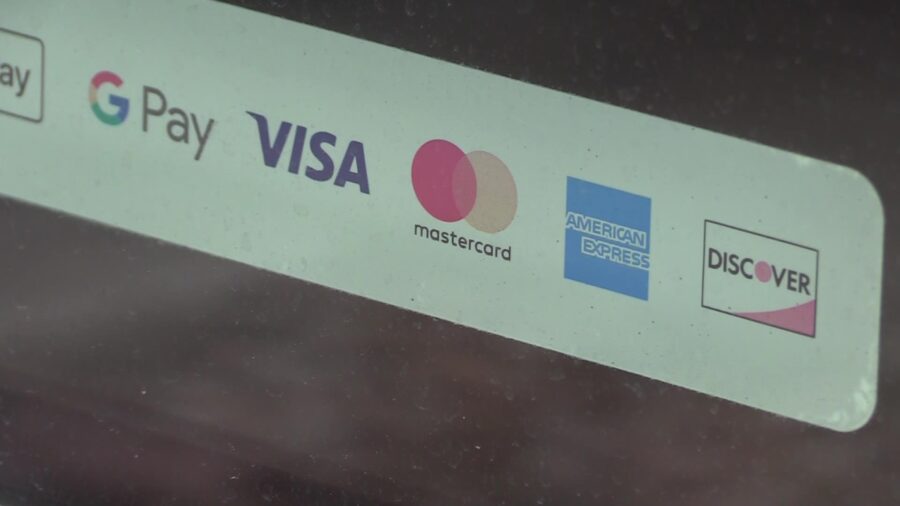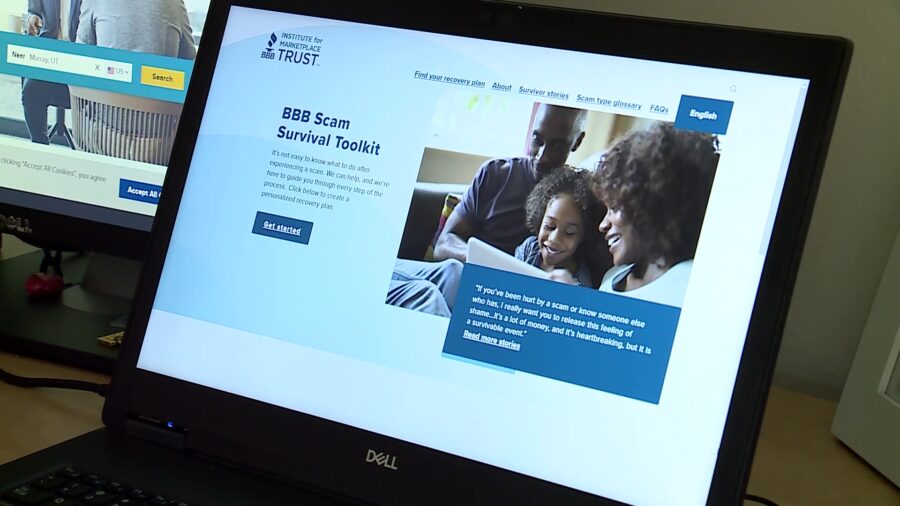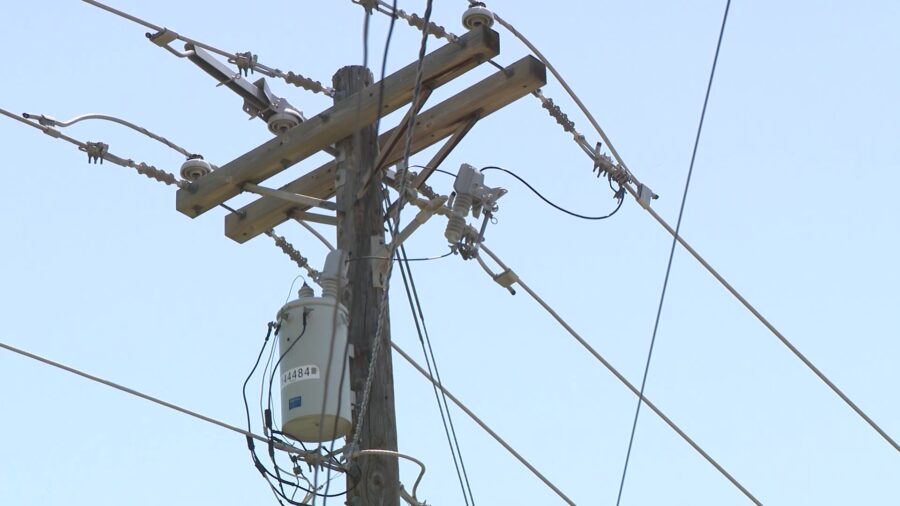KSL Investigation finds few cases of election crimes prosecuted in Utah
Oct 5, 2022, 10:53 PM | Updated: Oct 6, 2022, 6:59 am
SALT LAKE CITY — Concerns about election fraud and election security aren’t going away.
A Deseret News poll conducted in January 2022 showed while most Utahns are confident our elections will be fair and accurate this year (81% of respondents,) nearly one in five reported wavering faith in Utah election processes.
Those concerns prompted KSL Investigators to ask: what does widespread voter fraud look like, and has it happened in Utah?
“I don’t even know that I could say what widespread voter fraud looks like,” Utah’s top election official Lt. Gov. Deidre Henderson said. “It’s not a thing here in Utah, because we’ve worked so hard over the years to put in all of these checks and balances.”
Henderson’s office sounds like a broken record, repeatedly touting Utah’s secure election processes.
It’s a priority that evolved into a public service campaign, with billboards and commercials informing and reassuring Utahns of election security.
“So far, there really hasn’t been anything that anyone has shown us that is actually evidence of voter fraud,” Henderson explained to KSL Investigators. “Accusations are not evidence.”
That was clear during the primary election in June, when allegations of voter fraud repeated by state Rep. Phil Lyman, R-Blanding, were discovered to be false.
Don’t just take her word for it
Utah has a robust set of election laws, everything from voter intimidation to interfering with election officials’ jobs.
KSL Investigators filed a public records request with Utah courts statewide and retrieved every case of any election code violation prosecuted from 2012 and 2022.
We found that 17 people were prosecuted for various election crimes during that time, with 36 total charges levied against them.
The most common situation involved forging signatures on referendum or initiative packets. Eight people were charged with “misconduct of electors and officers” for this behavior. Many of them had been hired by Gather, a company gathering signatures for ballot initiatives like the 2018 Utah Medical Cannabis Act.
Court documents showed all these cases were caught by county election officials through signature verification processes.
Five people were charged with “remove, alter, deface, vandalize a campaign sign.”
There were no incidences of voter intimidation prosecuted in this ten-year span.
Just one man was charged with “false impersonation—double voting.” It happened in the 2020 General Election.
We called him to ask what happened, and he detailed that it was his first election as a voter. He misunderstood that provisional ballots were actual ballots, and voted again in person on election day. The county clerk caught the duplicate ballot.
He entered into a diversion agreement with the Cache County Attorney. The judge made him pay a $50 fine and the case was dismissed.
“Most people want to play by the rules”
Brian McKenzie helps run elections in Davis County as deputy county clerk. He told KSL the most common issue they see each election is family members voting and signing ballots for other family members.
“That is a crime,” McKenzie emphasized. Having permission to sign a ballot doesn’t negate that illegality.
“It will happen every election,” he said. “We usually have anywhere from a handful to a dozen or so that come in.”
That doesn’t mean every instance is referred for criminal charges. McKenzie said intent behind the vote is important.
“It’s really based upon the information that we can gather during that initial investigation,” explained McKenzie. “If we’re able to determine that, hey, there’s criminal intent here, versus maybe it’s a person who just didn’t understand what they were doing.”
McKenzie emphasized any ballots that have questionable signatures are not counted until it has been cured through specific processes.
Rather than give criminal records to moms voting for their kids who are on missions, McKenzie’s office takes an educational approach, combined with threats of hard time.
“We let them know that it’s potentially a felony if they’re charged and convicted for what they’ve done,” he said. “Wonderfully enough, we have not had any repeat offenders.”
That’s true statewide. KSL Investigators found no repeat offenders in court documents from the last decade.
Many took a guilty plea, diversion plans, or a plea in abeyance. We found only one person served two days in jail. All other jail or prison sentences were suspended. Most were ordered to do community service or pay a fine.
From a prosecution angle, Salt Lake County District Attorney Sim Gill echoed McKenzie’s experience with voter fraud at the ballot box.
“We take these issues extremely seriously, and it just is not there,” said Gill. “We have not seen it, we don’t see it in any kind of significant numbers.”
Even with some election crime happening, Gill reiterated it doesn’t change election results.
What does election crime *actually* look like in Utah?
The @KSLInvestigates team dug through court records to find out.Join us tonight at 10 on @KSL5TV pic.twitter.com/qUJZ6oNkZ5
— Daniella Rivera KSL (@DaniellaKSL) October 5, 2022
“When there is an anomaly, it is so infinitesimally small, percentage-wise,” said Gill. “It’s almost negligible that it would never have an impact on the outcome of an election.”
Gill agreed there’s care in handling any allegation of voter fraud to determine if it rises to a criminal level.
“There may be misunderstandings that are there, and as public prosecutors, if we have the evidence, we will file those charges,” Gill explained. “We will hold you accountable, but we also want to make sure we’re holding the person proportionally accountable for their conduct. What was their intent?”
Not a partisan issue
Gill observed a noticeable link between these messages coming from election officials and prosecutors: there’s no party politics at play in assuring Utah still leads the nation in secure elections.
“Let me answer it this way,” said Gill. “As a Democrat, who’s a district attorney, when I look at my governor and lieutenant governor who say there is no election fraud, I can join with them and say they agree with me that there is no election fraud. We, coming from different political realms, are committed to the integrity of that process for the state of Utah, for Salt Lake County, for every citizen.”
Increased election security
Election security was a hot issue in the 2022 legislative session, with 21 new laws emerging relating to securing ballot boxes, voter roll maintenance, and process transparency.
An attempt was made by Lyman to eliminate voting by mail as the default voting method, claiming the current method is “problematic” because of issues with voter rolls, and ballots are sometimes still issued to homes where voters have moved away.
County clerks have long been required to maintain voter rolls and have policies in place for keeping rolls updated when people move or die. A new law passed in 2022 strengthens those processes by giving specific timelines of when those rolls are maintained.
Lyman’s bill included provisions to require post-election, third-party audits, prohibit voter registration harvesting, and “manually counting ballots in the polling location with poll watchers present.” The bill was defeated in committee, with opposition from AARP, Navajo Nation, and several county clerks.
Some of the law changes allow more accessibility for poll watchers, giving those who have questions about election security a better opportunity to see the process for themselves. Poll watchers must sign up with the county clerk ahead of election day.
“If there’s voter fraud going on, I want to know about it,” said Henderson. “If there’s voter fraud going on, the county clerks want to know about it. Show us the evidence. Show us what the problems are, and we will address them.”
Have you experienced something you think just isn’t right? The KSL Investigators want to help. Submit your tip at investigates@ksl.com or 385-707-6153 so we can get working for you.


